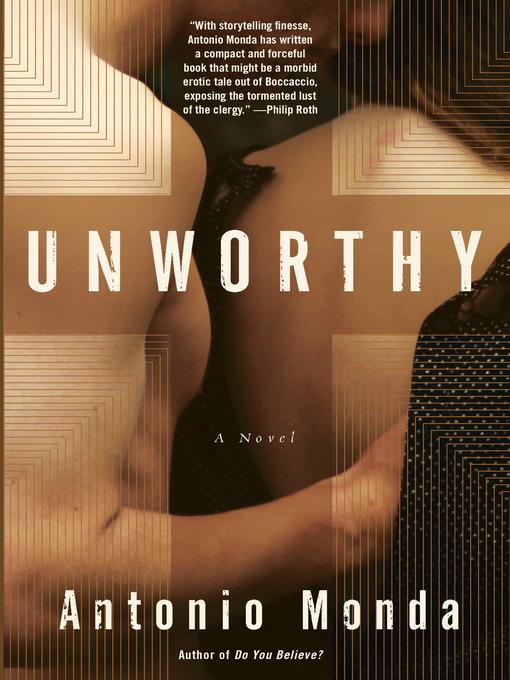
Unworthy
A Novel
- اطلاعات
- نقد و بررسی
- دیدگاه کاربران
نقد و بررسی

March 19, 2018
Set in the late 1970s, this ruminative novel from Monda, acclaimed Italian filmmaker, critic, and author of Do You Believe? Conversations on God and Religion, centers on a delinquent Catholic priest, Abram Singer, who battles mounting doubt and temptation in New York City. Once a construction worker who helped to build the World Trade Center, Abram joins the priesthood despite an innate inability to observe its rules and practices; in one exemplary incident, he steals money from the collection to fund the abortion of one of his mistresses, Lisa. Soon, Abram begins receiving anonymous letters threatening to expose his crimes to the church, and the situation gets increasingly complicated when Lisa is diagnosed with cancer. Forced to keep his distance from Lisa as her condition worsens, Abram’s faith and resilience are stretched to their limits after an intense physical altercation with Lisa’s brother. While too much of the novel is bogged down in generalized musings on religion and morality, Monda writes with earnestness, especially in his evocations of the novel’s period and setting. Some of the strongest sections have nothing at all to do with religion; these moments draw the reader into, for instance, the grimed milieu of the Port Authority in a way that makes the terrestrial feel holy. And while the novel is more profound in theory than in execution, Monda proves himself a worthy interlocutor of the spiritual and the
secular alike.

March 15, 2018
In 1970s New York, a young priest agonizes over his surrender to temptations of the flesh.Monda (Do You Believe? 2007, etc.) is an Italian writer who lives in New York City. A few references--building the World Trade Center towers, Mayor Abraham Beame, Studio 54, the Foreman-Ali fight in Zaire--give a glancing idea of the city and the time when this book is set. The story concerns a brief period in the life of the narrator, a recently ordained Catholic priest who has embarked, never mind the vow of chastity, on an affair. He also deals with parish business, hears confession, and delivers homilies. A subplot involving an anonymous accusatory letter tries to add suspense, as does the priest's discovering a lump on his lover's breast. The slim novel often toggles between his trysts and the post-coital tristesse of his solitary inquisitions into why unshaken faith coexists with unslakable appetites. Monda's treatment of a morally and theologically complex area, however sincerely expressed by his priest, is somewhat scattershot and fraught with overworked pathos. The cleric's guilt-ridden internal keening becomes a sort of liturgy he repeatedly performs in the sanctuary of his tormented mind, a dark Mass of the soul served with a lot of whine. It is possible, though, to admire the economy of conscience with which he melds the sins of lying, lust, and larceny when he says he is going out to see his mother before going off to buy his lover something with money stolen from the collection plate.An interesting but finally disappointing look at a priest grappling with women and guilt.
COPYRIGHT(2018) Kirkus Reviews, ALL RIGHTS RESERVED.

April 15, 2018
Abram Singer is a Catholic priest in New York City, haunted by his illicit sexual encounters and an ongoing affair. Bound by his eternal oath and gravely aware of his wrongdoing, he recounts the physical and emotional depths of the affair with conflicted remorse. The interminable return to his misdeeds is exasperating and reveals an unwillingness to deny their forbidden tenderness. Longing for release, Father Singer realizes he is in love; and through that love, he experiences a new depth of pain and loss. Set in the 1970s, Monda's novel is a moving exploration of suffering and happiness and an examination of the shame of sin and the thrill of yearning. Explicit sexual encounters are in stark contrast with eloquent Catholic theological reflections, and the narrator's lustful musings about his dual existence are dark and complicated. His weakness, so authentically rendered; his longing to be better than his very human impulses; and his raw, conflictful confession all paint an intimate portrait of a man besieged by the tumultuous collision of doctrine and desire.(Reprinted with permission of Booklist, copyright 2018, American Library Association.)




دیدگاه کاربران